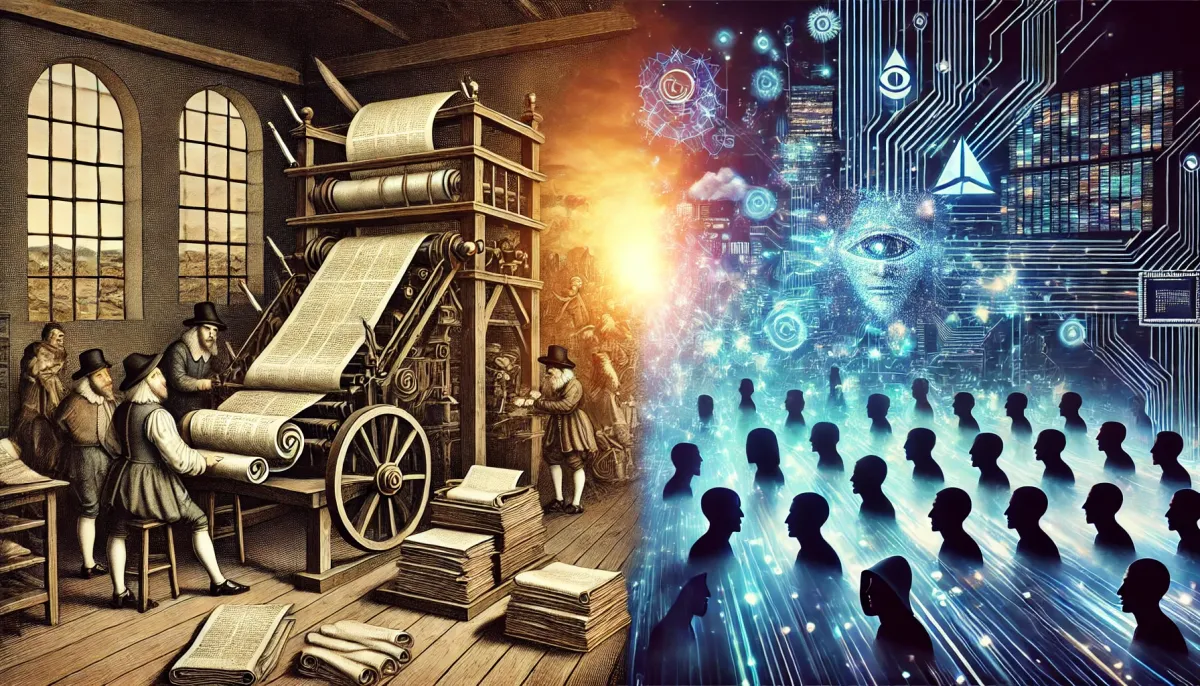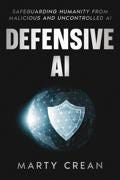From Printing Press to AI – Humanity’s Reluctant Romance with the Truth

This post is also available as a podcast if you prefer to listen on the go or enjoy an audio format:
Throughout history, transformative technologies have promised to elevate human knowledge and understanding. The emergence of artificial intelligence, our latest revolutionary tool, is a source of wonder and excitement. Yet, as we stand at a familiar crossroads, we must remember that this potential echoes a pattern established centuries ago with the invention of the printing press.
Modern AI evangelists often draw parallels between their technology and Gutenberg's printing press, heralding a new age of enlightenment and scientific progress. They paint visions of an AI-driven renaissance that will revolutionize human knowledge and capability. While such comparisons aren't entirely misplaced, they often overlook crucial historical nuance. The printing press, introduced around 1440, predated the scientific revolution by approximately two centuries—a reminder that technological capability doesn't automatically translate into intellectual advancement.
The story of the printing press reveals a troubling aspect of human nature: our tendency to embrace sensationalism over substance. Consider the contrasting fates of two influential works from this era. Copernicus's masterpiece, "De revolutionibus orbium coelestium," which introduced the revolutionary concept of a heliocentric universe, initially garnered such modest interest that its first printing of roughly 40 copies didn't sell out. This groundbreaking scientific work, which fundamentally altered our understanding of our place in the cosmos, initially struggled to find an audience.
Meanwhile, Heinrich Kramer's "Malleus Maleficarum," a manual for witch-hunting published in 1487, achieved remarkable commercial success. This text, which codified methods for identifying, prosecuting, and executing supposed witches, went through at least 29 editions over two centuries. Its widespread distribution and enduring influence demonstrated how readily humans embrace narratives that validate fear and prejudice rather than challenge established beliefs with scientific evidence.
Today's artificial intelligence stands poised at a similar junction. Its potential for advancing human knowledge and capabilities is unprecedented, yet we're already witnessing how it can be wielded to generate and amplify misinformation at unprecedented scales. The technology's ability to create convincing false narratives, manipulated images, and synthetic media presents challenges that would have been unimaginable even to the most prolific producers of printed propaganda centuries ago.
The parallels between these technologies extend beyond their potential for misuse. The printing press and AI democratized access to information creation and distribution, fundamentally altering how knowledge spreads through society. Both technologies arrived with promises of enlightenment and progress, yet human nature has History suggests that humanity's relationship with truth-telling technologies follows a predictable pattern: initial enthusiasm gives way to exploitation, followed by reckoning and eventual regulation. With AI, we have the unique opportunity to learn from this historical precedent. We must actively shape how this technology integrates into our society rather than passively allowing history to repeat itself.
The question isn't whether AI will become another tool for spreading misinformation, history suggests this is inevitable. The real question is whether we can simultaneously nurture its potential for advancing human knowledge while developing robust systems to mitigate its misuse. Unlike our ancestors facing the printing press, we have the advantage of a historical perspective. Whether we'll use this wisdom to chart a different course is the challenge.
Our relationship with truth remains as complex today as it was in the age of Gutenberg. As we stand at the threshold of the AI era, we must remember that technology merely amplifies human tendencies—our nobility and our flaws. The true revolution won't come from technology itself but from how we use it.
Thank you for being a part of this fascinating journey.
BearNetAI. From Bytes to Insights. AI Simplified.
BearNetAI is a proud member of the Association for the Advancement of Artificial Intelligence (AAAI), and a signatory to the Asilomar AI Principles, committed to the responsible and ethical development of artificial intelligence.
Books by the Author:


Categories
AI History, Technology Impact, Misinformation, AI Ethics, Social Commentary
Citations:
Blum, A., & Dabbish, E. (2021). IoT Security Challenges: The Case of AI Botnets.
Springer. Kramer, H. (1487). Malleus Maleficarum. Speyer. McCorduck, P. (2004).
Machines Who Think: A Personal Inquiry into the History and Prospects of Artificial Intelligence. A K Peters. Smith, J. (2020).
The Printing Press and Its Impact on the Spread of Knowledge. Oxford University Press.
BearNetAI, LLC | © 2024, 2025 All Rights Reserved
LinkedIn BlueskySignal: bearnetai.28